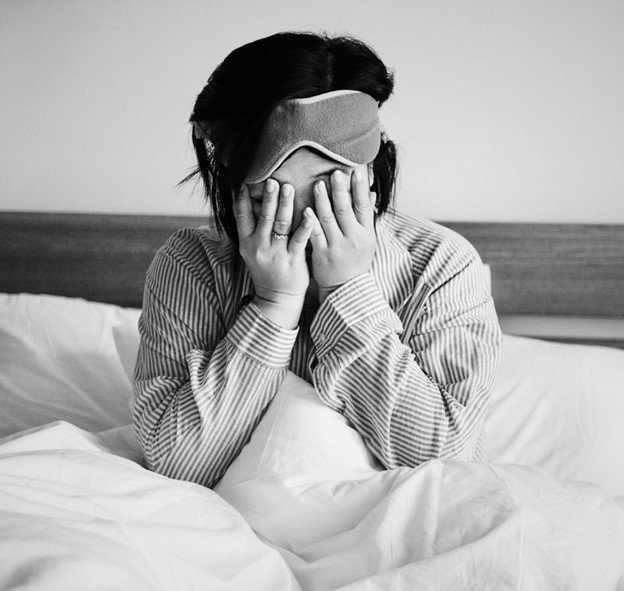Last updated on April 10th, 2025 at 12:21 pm
Natural Remedies for Better Sleep
Sleep is essential to feeling your best. But millions of people face challenges in getting the quality rest they need. For some, it’s a night of throwing up and turning, while some people wake up feeling more tired than in bed. These sleep disturbances are not only frustrating; but it also affects our health, mood, and even our productivity throughout the day. Although medication is an option, many people prefer to try natural remedies first. Luckily, there are effective home remedies for sleep disorders that can help restore your sleep routine and relieve symptoms.
Sleep Disorders Symptoms
Here are some common types of sleep disorders and the symptoms you might experience:
1. Insomnia
Insomnia is one of the most common sleep disorders. It has the following characteristics:
Difficulty falling asleep : Struggling to fall asleep before bed can cause irritability and anxiety.
Persistent wakefulness : Waking up several times during the night. Often struggling to fall back asleep.
Waking up early in the morning : Waking up so early that you can’t fall back asleep. Daytime fatigue: Not getting enough sleep at night can lead to tiredness or sleepiness during the day.
2. Sleep apnea symptoms
Sleep apnea is disrupted breathing during sleep. Its characteristics are:
Loud Snoring : Snoring is a symptom of sleep apnea. This is often accompanied by a temporary pause in breathing.
Panting or choking during sleep : Waking up suddenly with a feeling of choking or suffocation.
Excessive daytime sleepiness : Fatigue or drowsiness may occur during the day even after a good night’s sleep.
Morning headache : Waking up with a headache, which can be a sign of lack of oxygen during sleep.

3. Narcolepsy
Narcolepsy is a neurological disorder that affects the control of sleep and wakefulness. Its characteristics are:
Excessive daytime sleepiness : A strong need for daytime sleep. This often results in unplanned sleep.
Cataplexy : Sudden loss or weakness of muscles. This is most often caused by strong emotions, such as humor or surprise.
Sleep paralysis : Temporary inability to move or speak while asleep or awake. Hallucinations: Vivid, often frightening, dreams or hallucinations that occur during sleep or wakefulness.
4. Symptoms of Restless Legs Syndrome (RLS)
RLS is characterized by an uncontrollable urge to move the legs. Especially in the evening or at night. Characteristics are:
Discomfort : crawling sensation Tingling or pain in the feet, which can make it difficult to relax.
Withdrawal from movement : Symptoms usually improve with movement. This results in restless behavior when trying to sleep.
Sleep disturbances : Difficulty falling asleep or staying asleep due to discomfort.
5. Heart rhythm abnormalities
Disturbances in the heart rhythm affect the duration of sleep.
Symptoms may include : Irregular sleep-wake pattern: Sleeping and waking up at irregular times, such as staying up all night and sleeping during the day.
Difficulty adapting to change : Struggling to adjust to changes in your sleep schedule, such as during shift work or traveling across time zones.
Daytime fatigue : Feeling constantly tired and sluggish during the day due to sleep disturbances.
Why do I Sleep So Much ?
On the other side, some people experience problems with oversleeping and question “Why am I sleeping too much?” There can be several causes of excessive sleep, including depression and anxiety, certain medications, chronic fatigue syndrome, sleep apnea.
Home Remedies To Improve Sleep
Understanding the nature of sleep problems is important in order to receive appropriate sleep disorders treatments. Let’s explore some home remedies that can help improve the quality of our sleep.
1. Set a sleep schedule : Creating a consistent sleep routine is important even on weekends. Try to go to bed and wake up at the same time every day. This helps regulate your body’s internal clock. Makes it easier to fall asleep and wake up refreshed.
2. Create a comfortable bedtime routine : Engage in calming activities before bed, such as reading, taking a warm bath, or practicing mindfulness meditation. This signals your body that it’s time to doze off, reducing your chances that it is to sleep badly at night.
3. Limit screen time : The blue light emitted by screens can interfere with the body’s production of melatonin, the sleep hormone. To reduce this impact, aim to turn off electronic devices at least an hour before bed.
4. Create an environment that encourages sleep : Your bedroom should be a relaxing place to sleep. Make sure your room is dark, quiet, and cool. Consider using blackout curtains, earplugs, or noise canceling devices to create an optimal sleep environment.
5. Watch your food : Remember what you consume, especially at bedtime. Heavy meals, caffeine, and alcohol should be avoided as they can disrupt your sleep cycle. Eat a light snack, such as a banana or a small bowl of oatmeal, which contains nutrients that help you sleep instead
6. Herbal medicine : Certain herbs have been used for centuries to promote relaxation and improve sleep. Consider trying:

Chamomile Tea: Known for its calming properties.
Lavender : Aromatherapy using lavender essential oil can improve sleep quality.
Valerian Root : This herb has a sedative effect and can help you fall asleep faster.
7. Exercise regularly : Exercising during the day helps you fall asleep faster and sleep deeper. Aim for at least 30 minutes of moderate exercise most days of the week. But try to avoid strenuous exercise near bedtime.
Healthy Sleep Habits for lasting results
Incorporating these home remedies into your daily routine can greatly improve the quality of your sleep. Additionally, adopting healthy sleep habits is important for long-term benefits:
Limit naps : Although naps are refreshing, but long or irregular naps can affect your nighttime sleep.
Stay away from stimulants : including caffeine and nicotine. Especially in the afternoon and evening.
Manage stress : Do stress-reducing activities like yoga, meditation, or deep breathing.
Conclusion
Sleep disorders can feel overwhelming. But by understanding the symptoms, types and possible causes you can take steps to improve the quality of your sleep. Home remedies for these sleep disorders combined with healthy habits can create a solid foundation for a restful night. Keep in mind that if sleep problems persist despite these remedies, it may be time to consult a health professional to further evaluate options and treatment. Embrace these changes, and soon you’ll say goodbye to restless nights and welcome restorative sleep into your life. Sweet dreams!
FAQs on Home Remedies for Sleep Disorders
1: What are some natural ways to fall asleep faster?
Create a relaxing bedtime routine with reading or meditation. Limit screen time before bed. And try drinking chamomile tea. These habits signal the body that it’s time to relax and promote faster sleep.
2: How can I naturally improve my sleep quality?
Set a regular sleep schedule. Exercise regularly and create a cool and dark sleep environment. Avoid heavy meals and caffeine close to bedtime to promote deep, uninterrupted sleep.
3: Are there any specific herbs that help you sleep?
Yes, herbs such as valerian root, lavender, and chamomile have calming properties. Drinking herbal tea or using lavender essential oil before bed can help you relax naturally and improve the quality of your sleep.
Related Links :

